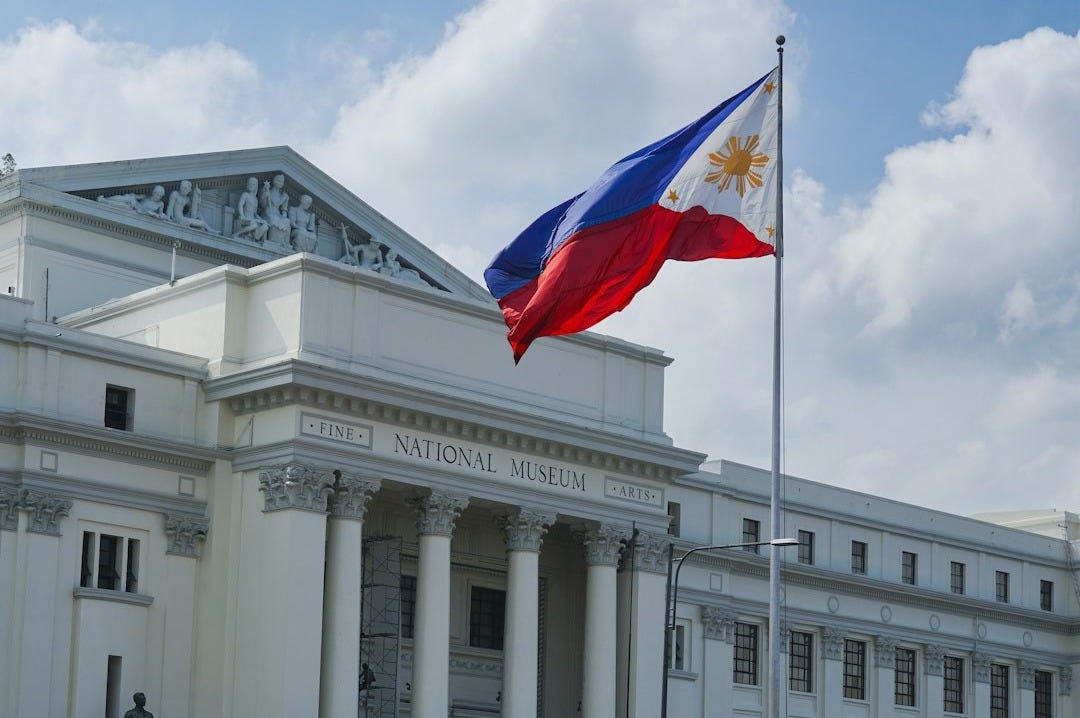Progress in the Philippines
The country has embraced markets and unleashed prosperity in recent decades but still has a long way to go
The Whetstone Freedom Fund (WFF)—is an international initiative founded by the Institute of Economic Affairs in honour of the late Linda Whetstone, to support classical liberal ideas around the world. Each month on Insider we will take a deep dive into the countries and partnerships which are being supported by the WFF.
Post-War East Asia represents the full spectrum of economic and political development. On one extreme are countries like Singapore, which has embraced a unique mixture of social authoritarianism, markets, and government planning (particularly in land use) which has seen its GDP per capita rise to parity with the United States in 2020, having been one third of America’s level when it became independent in 1961. Taiwan has experienced similar growth while developing a more Western-style liberal democracy. On the other end of the spectrum are countries like Laos and North Korea, which are among the world’s most closed, authoritarian, and impoverished nations. In between are partial success stories like the People’s Republic of China and Malaysia, which have seen drastic reductions in poverty and increased living standards over the past two decades whilst being held back by heavy state intervention in the economy and civil society.
The Philippines is another example of an Asian country which has embraced markets and unleashed prosperity in recent decades but still has a long way to go in realising the full benefits of a market-based economy. The IEA’s Whetstone Freedom Fund has partnered with The Foundation for Economic Freedom (FEF) to move the Philippines closer to doing just that.
With 110 million people across more than 7,600 islands, the Philippines is a diverse and dynamic country that has experienced impressive economic growth over recent decades thanks to trade liberalisation, deregulation, and market reforms. The Philippines embraced freer trade and markets later than the ‘Asian Tigers’ countries. But after a series of corrupt and bloated governments, small conflicts, and natural disasters caused several economic crises from the late 1970s to the mid 1990s, a consensus emerged in favour of freer markets and international trade. Lower and simpler taxes, government spending restraint, tariff reductions, and deregulations across several industries have unleashed tremendous growth in the Philippines ever since. But the job is far from finished. Weak property rights, cronyism, and creeping authoritarianism continue to hold the country back. In this fragile environment, liberal ideas are often misrepresented or dismissed altogether. That’s where the Foundation for Economic Freedom comes in.
Foundation for Economic Freedom
The Foundation for Economic Freedom (FEF) is a public advocacy organization dedicated to advancing the cause of economic and political liberty, good governance, secure and well-defined property rights, market-oriented reforms, and consumer welfare. FEF was founded in 1996 as the Philippines recovered from a series of corrupt and economically inept governments and a regional recession. Since then, they have pushed forward key reforms in agriculture, energy, and trade that have contributed to rising living standards nationwide. For example, until 2019, 2.5 million Filipino farmers were trapped in a state of legal uncertainty which prevented them from legally selling their land or using it as collateral in financial agreements. This not only meant that Filipino farmers were deprived of their right to use their own land but that a significant portion of agricultural land deals were taking place on the black market, causing significant misallocation of land and capital. FEF were instrumental in the push to streamline the process of certifying property rights for these farmers and liberalising rules around land use. Their efforts won them the 2019 Templeton Freedom Award.
The Whetstone Freedom Fund has supported FEF to grow their popular outreach programmes in the past two years through their Faces of Liberalism project, based on Eamonn Butler’s IEA primer School of Thought: 101 Great Liberal Thinkers. The project simplifies and summarises the ideas of each liberal thinker to appeal to a broad range of participants, primarily students, academics, and politically engaged citizens. It is based on a series of 10 social media graphics introducing a new generation of Filipinos to key liberal thinkers such as Adam Smith, David Hume, and John Stuart Mill. With the WFF's support, the work has been seen over half a million times and reached over 160,000 unique individuals.
What's Next?
Now, WFF and FEF are embarking on their most ambitious project yet: a multimedia campaign to bring IEA ideas to hundreds of thousands more Filipinos. Using a selection of IEA primers—including An Introduction to Economic Inequality, Public Choice – A Primer, and An Introduction to Capitalism—FEF will apply some of the foundational ideas of a free society to the pressing challenges facing the Philippines and increase their reach to an even wider audience.
The next WFF-FEF project aims to:
Produce original content contextualising liberal ideas for the Filipino public, including infographics and a series of new podcasts.
Host webinars, training sessions, and student events to ensure these ideas take root among a new generation.
Reach an estimated 700,000 individuals via YouTube and social media.
We hope that this new project will go even further than the last to educate hundreds of thousands of Filipinos about the true meaning, values, and applications of liberalism. This will lay the groundwork for the Philippines to build on its successful pro-market reforms and build a freer, more prosperous future.
How You Can Help
With the WFF's support our partners are spreading the foundational ideas of a free society right across the globe. In the Philippines and beyond, the WFF continues Linda Whetstone's legacy of supporting organisations to defend and expand liberty in the places that need it the most. None of this work would be possible without your support. If you would like to support the Whetstone Freedom Fund or find out more about the work we do, visit our website.




